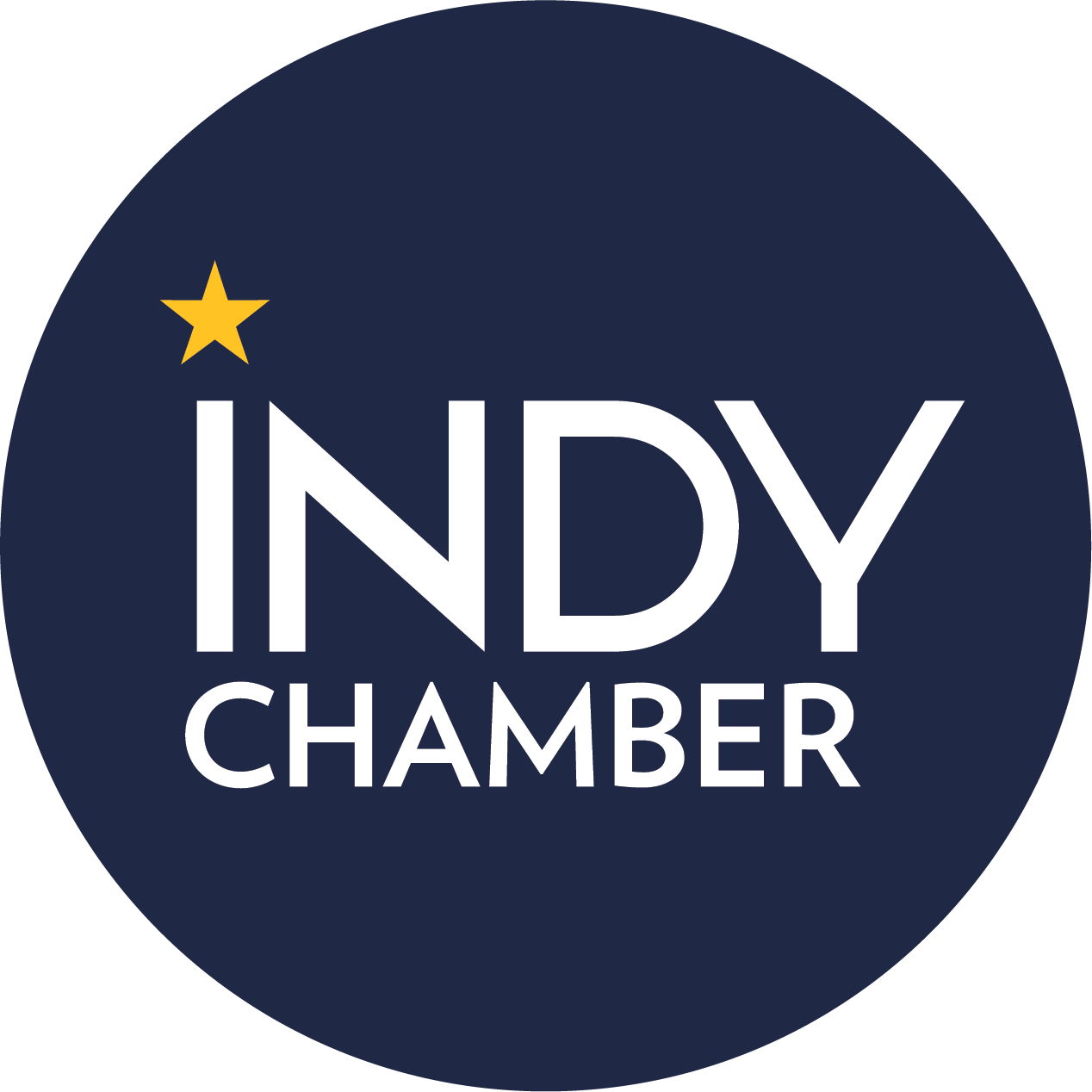Profitable Plastics: GoGlobal grant helps Jeco expand in EU, explore Asia

In January, the Indy Chamber announced four new recipients of our ‘GoGlobal’ Export Acceleration Grant program. Supported by JPMorgan Chase, GoGlobal grants help mid-market companies pursue new or expanded export efforts with competitively-awarded funds up to $5,000.
Jeco Plastic Products, an internationally-recognized producer of plastic pallets and other material handling solutions, is among the latest winners – but the company is far from a late addition to the region’s growing list of exporters.
Craig Carson, CEO of Jeco Plastics, started exploring international markets soon after acquiring the company in 1998. Coming to Central Indiana from Illinois with a background in global business, he refused to believe that exporting was “just for the big guys.”
Twenty years later, Jeco Plastics continues to expand its overseas footprint. Jeco will use its GoGlobal grant to bolster its budget for industry tradeshows, covering part of the cost of two important events in Europe and freeing up funds to investigate opportunities in Japan later in the year.
“Many mid-market firms might question if they can afford to start exporting – soon after settling in at Jeco, I concluded we couldn’t afford not to,” Carson explained. “If smaller manufacturers don’t look for new opportunities, even overseas, we find ourselves competing against larger peers in mature markets with lower margins.”
Jennifer Pearl, the Indy Chamber’s Director of International Programs, notes that the GoGlobal grants are only one piece of the Chamber’s ‘Global Indy’ strategy that includes reducing financial and logistical barriers to exporting for companies like Jeco Plastics.
“Jeco may have a head start on many mid-market companies, but we’re here to make the process easier for all employers,” said Pearl. “We provide business coaching and access to capital, expert advice on exporting, and partnerships with public agencies and industry organizations focused on international commerce – if we don’t have the answer for a company seeking our help, we can point them in the right direction.”
Looking to the future by traveling to the past:
When Craig Carson came to Central Indiana twenty years ago, he had clear plans to acquire and grow a leading plastics manufacturer in the region. While the path for expansion beyond the United States was less certain, Carson’s experience had prepared him to be open to growth wherever it presented itself.
Carson had his ‘big break’ into executive management in the mid-80s, running the U.S. Plastics division of Glynwed International, a $1.5B UK firm, in the 1980s. He put the experience he earned to use in private equity, turning around and selling two plastics manufacturers in the ‘90s. Based in Chicago, he spied longer-term potential a few hours from home – Jeco Plastics, a Plainfield-based producer of precision-molded, highly-durable plastic pallets.
“Jeco was already a leader in engineering and producing these specialized pallets for the printing industry,” Carson recalled. “Exporting was a natural progression, to extend our advantage into new markets.”
This realization really hit home for Carson on a trip to Germany early in his ownership of the company, attending a large printing industry trade show near the headquarters of Heidelberg, a major worldwide manufacturer of printing equipment.
“Germany is the historic center of the print industry – back to Gutenberg’s invention of the modern printing press in the 1400s – and it’s still home to many major players today,” Carson noted. “Heidelberg is a global leader, and I saw potential customers from across Europe at this show…but I didn’t see a natural competitor for Jeco.”
Large-scale, industrial printing presses can be a multi-million-dollar investment; transporting them takes durable, precision-molded pallets that can bear their weight and prevent damage in transit. Once the presses are up and running, productivity is critical: Specialized pallets are also needed to aid the transport of heavy paper rolls and speed the finished products – textbooks, newsprint, etc. – “hot off the presses” towards the next steps in their distribution to customers.
“Jeco maintains a competitive advantage in the U.S., but it was apparent that we had even more profit potential where we weren’t as well-known, in proximity to large European customers,” Carson said.
Carson led Jeco over, around – and sometimes through – hurdles to modestly-sized manufacturers entering the global marketplace, and soon gained business from Heidelberg and other contacts made on that first excursion.
Two decades of export experience – what’s next?
For Carson, exporting equals growth – moving into new markets and earning the loyalty of new customers before competitors can try to “catch up.”
“We typically have a clear technological edge in engineering and manufacturing,” Carson noted. “Our pallets are precision-molded with consistent quality – given the capital investment that high-volume printers make in equipment, and the demands on their supply chains, there’s virtually no margin for error…down to the pallets. Our quality is a commitment to their productivity.”
But even with superior products, the margin for business complacency is just as low as the customer’s expectations are high.
“Even the best products run the risk of being ‘commoditized’ over time; competitors emerge, pricing models change, the market gets saturated,” Carson explained. “But exporting gives us a world of opportunity to diversify and expand our customer base.”
Jeco is using its GoGlobal grant to initially ease costs associated with two industry tradeshows in Europe: Audi Ingolstadt and HEI Days, an internal conference for customers of Heidelberg. Both are familiar territory for the company. But Carson said that reducing these expenses allows him to reallocate resources for a new event opportunity in Japan later in the year.
“Exports make up a significant share of our revenue, but we still deal with finite budgets for sales and marketing – and international business is a costly endeavor,” he said. “For a business like ours, even a $5,000 grant can tip the cost-benefit analysis in favor of exploring new sales overseas.”
With the GoGlobal grant making the marketing math work, Carson is eager to get his Plainfield-made pallets a foothold on the other side of the globe, in Asia.
“Asia now represents a larger continental economy than North America or Europe, so we need to start exploring the possibilities there,” he remarked. “With the help of the Indy Chamber’s ‘seed capital’ through the GoGlobal grant, we can get started even sooner than I’d hoped.”
Encouragement for Exporters:
As Craig Carson aims to grow Jeco’s presence in Europe and prepare its first foray to the Far East, he has words of encouragement and advice for fledgling exporters in the Indianapolis region. He notes that mid-market firms need to be prepared for the legal, logistical, language and cultural issues that come with doing business outside the United States.
“Larger companies can afford to hire experts and engage consultants,” he said. “Smaller firms have to be pragmatic about the costs of exporting: It takes time, money and planning. And as a CEO, don’t underestimate the personal commitment – be prepared to travel and learn a lot first-hand.”
But Carson added that the time has rarely been better to pursue exporting, especially from Central Indiana.
“Currency trends and energy costs are favorable, and the Hoosier work ethic delivers a real productivity advantage over most other countries, and other states, too,” he argued. “Given though we need freer trade policies nationally, state and local officials here are very supportive of business and global growth.
“And even for companies that lack the wherewithal of a major corporation, partners from the Indy Chamber to the U.S. Department of Commerce are available,” Carson finished. “Especially if you’re savvy about taking advantage of the free or low-cost services available, the rewards of exporting can far outweigh the risks and resource commitments.”
Check out a recent IBJ feature on Jeco Plastics.
Member Stories
Eskenazi Health Wins Three Categories and Takes Top Honor at Indy Chamber’s Monumental Awards
Indy Chamber Member Discounts!

Join Our Newsletter
Quick Connect Links


